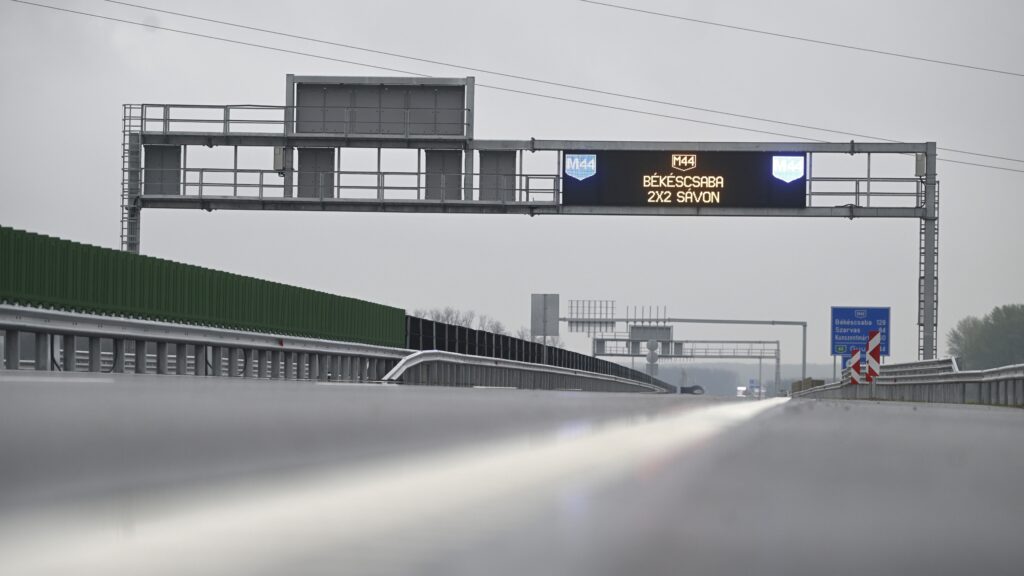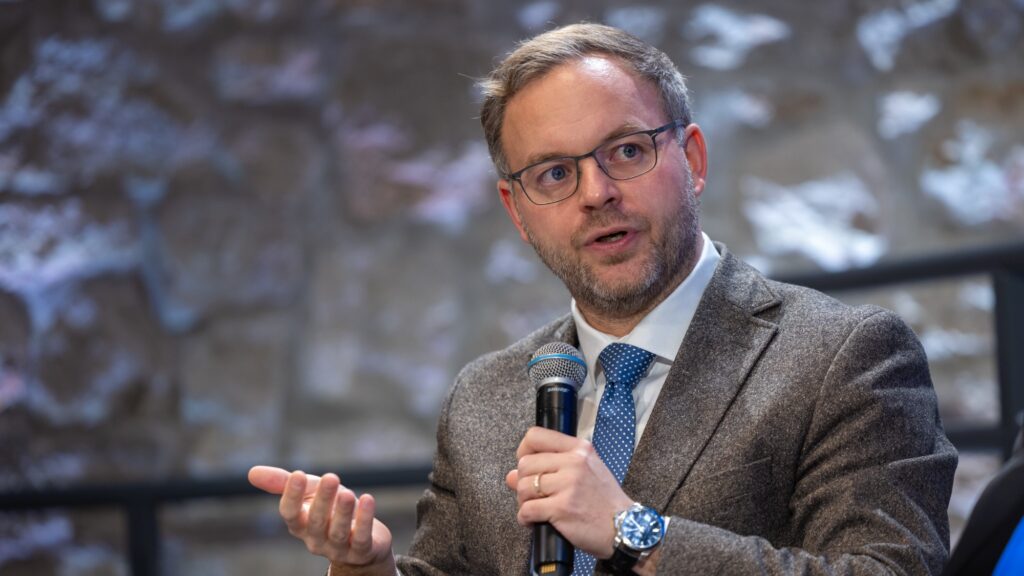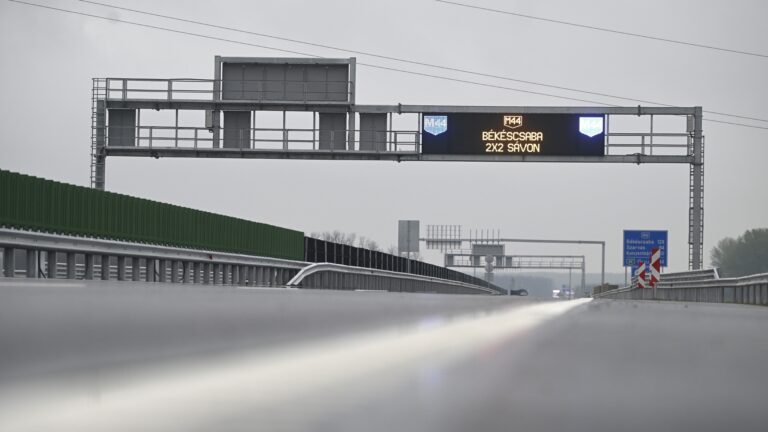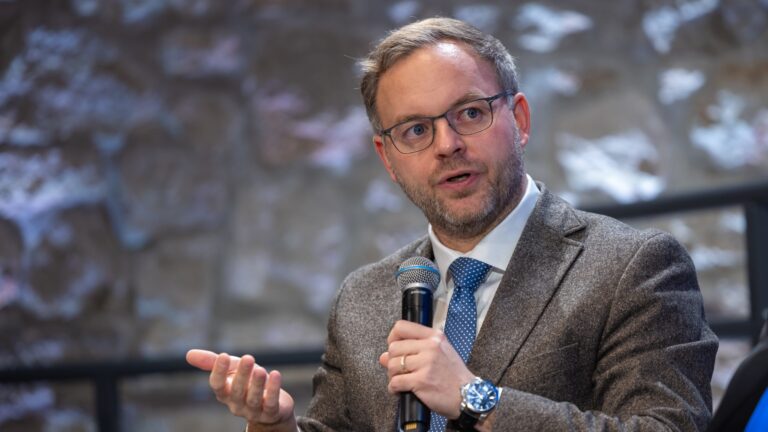Brigadier General Imre Porkoláb, Ministerial Commissioner for Defence Innovation, discussed the development of the Hungarian defence industry and the impact of the defence sector on the economy in a television interview following the recent opening of Rheinmetall’s new factory in Zalaegerszeg.
The capability building of the armed forces, defence industrial development and defence innovation cannot be separated from each other, which is why they have been conducted in Hungary along a joint strategy since 2016, Ministerial Commissioner Imre Porkoláb stressed. Defence industrial investment is a long-term investment, he continued, adding that in Europe, since the defence industry is inherently heavy-moving due to its size and nature, companies looking for new targets are looking at 30–40-year horizons. Investment should be viewed in the same way, he noted.
While building up the domestic defence industry has a major stimulating effect on the economy, it is not just about economic profitability, the Commissioner stressed. The building of the domestic defence industry also has a national security impact in terms of the country’s ability to supply and replenish its troops with weapons and raw materials produced at home. In any case,
domestic defence industrial capacity is cheaper and shortens supply chains,
which is also important for the security of supply and resupply. Moreover, factories like Rheinmetall’s recently inaugurated plant create hundreds of jobs for the Hungarian people.
As we reported earlier, on 18 August, German defence company Rheinmetall’s factory was inaugurated in Zalaegerszeg. The plant will mainly produce the Lynx KF41 infantry fighting vehicles (IFV), which is one of the most significant developments for the Hungarian Defence Force’s capability build-up. Hungary has ordered 209 Lynx KF41 infantry fighting vehicles in seven variants, 18 support vehicles and 38 military trucks from the company, most of which will be produced in the country. The contract also includes other services such as simulators, training and education, initial spare parts supply and maintenance services. Hungary is the first country in the world to put the Lynx IFV into service and the first to start series production.
The development, production and test centre, which includes a climate chamber and a firing range, was built on a 33-hectare site in Zalaegerszeg and will eventually employ a total of 350 people. According to the Hungarian MoD, 172 Lynxes are to be manufactured in Rheinmetall Hungary’s production facility by 2029. The plant will be able to produce 45 Lynxes per year and is also expected to later make new types of military vehicles, civilian equipment and drones.
Regarding job creation, Imre Porkoláb explained that it is not only about the 350 people who will be working in Rheinmetall's new factory, but also about the
increasing number of small and medium-sized enterprises in Hungary
that will have the opportunity to access supply chains, through the supplier capacity development programme, and who will thus secure long-term employment.
Commenting on the plant, the Ministerial Commissioner for Defence Innovation said that the operations there can be divided into two parts, one for production and one for development. In the case of the former, a large number of specialists and suppliers, from engineers to welders and suppliers of high-tech electronics, can gain opportunities in the production of the Lynx armoured vehicles. In the field of development, Mr Porkoláb continued, 'big companies are coming to Hungary with R&D budgets that are significant in themselves. Rheinmetall in this case is the twenty-fourth largest company in the world'.
'This is a research and development capacity that, if Hungary can attract just a part of it and incentivise it with the participation of domestic consortia, it could provide opportunities for a lot of domestic entrepreneurs,' he underlined.
The Brigadier General recalled that at the factory opening event, Hungarian Minister of Defence Kristóf Szalay-Bobrovniczky and Rheinmetall’s CEO also signed a memorandum of understanding for a joint venture between the State of Hungary, Rheinmetall Italia SpA and Israel’s Uvision Air Ltd to start the procurement of remote-controlled precision munitions to complement the armament of the Lynx infantry fighting vehicles rolling out of the factory. The agreement also contains an option for additional joint research and development activities between the parties and the preparation for domestic production.
On innovation, the Brigadier General stated that there is a strong need to create testing and validation environments that allow R&D actors to test their ideas and prototypes. One such example is the ZalaZONE vehicle test track in Zalaegerszeg, which can even test combat vehicles and offers a unique opportunity in Europe for autonomous systems. More such test environments are needed to support the domestic defence industry and capability development.
The ministerial commissioner concluded that Hungary is going through challenging times with a war raging in its neighbourhood, and therefore there is a ‘necessity to demonstrate deterrence both in terms of military force and domestic security of supply, and the defence industry has a major role to play in this.’
Related articles:








